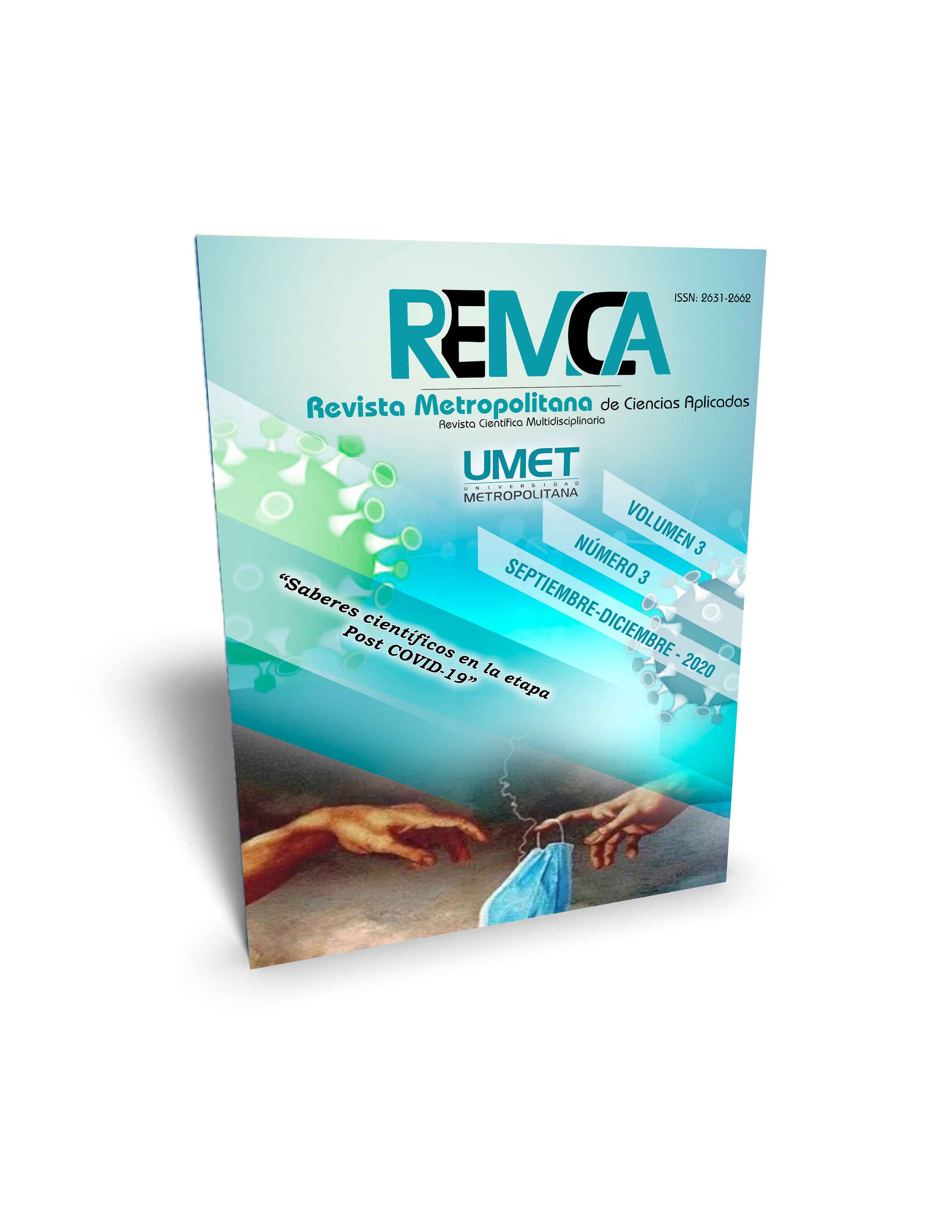Teaching strategies for basic education students
DOI:
https://doi.org/10.62452/nrdnz033Keywords:
Basic education, teaching-learning, active strategiesAbstract
trategies in basic education students, it is known that for success in the teaching-learning process it depends on the dynamics that are applied in mediation to achieve an effective interaction between the teacher and the student. The purpose was to determine the use of appropriate methodological strategies during the educational process in the fifth grade of the Galo Plaza Lasso School. To this end, qualitative and qualitative research was used, supported by theoretical and empirical methods such as analytical, synthetic, inductive, deductive, descriptive and observation; For the collection of field information it was necessary to use two questionnaires, the first for students, structured with four dimensions and 32 items with a Likert-type scale, the second, organized in two dimensions of 10 items, applied by teachers. Among the results, it was evident that 45% of the respondents did not consider the use of active strategies in the classroom necessary, omitting meaningful learning. It is concluded that what is established in theories about the importance of the ideal methodology for the teaching process, is far from its task, therefore, the child's innate potential is wasted and with it the development of required basic skills is not achieved.
Downloads
References
Aguado, I., & Rengel, L. (2018). Metodología para la formación y desarrollo de la competencia didáctica del docente de cultura física. Revista de la facultad de cultura física de la Universidad de Granma, 15(47), 129-142.
Aragón, L., & Cruz, I. (2016). Del huerto ecológico universitario al aula de infantil: experiencias educativas en torno a problemas ambientales en la etapa infantil. Revista Internacional de Educación Preescolar e Infantil, 2(1), 40-48.
Ausubel, D., Novak, J., & Hanesian, H. (1983). Psicología Educativa: Un punto de vista cognoscitivo. Editorial Trillas.
Burgo, O., León, J., Cáceres, M., Pérez. C., & Espinoza, E. (2019). Algunas reflexiones sobre investigación e intervención educativa. Revista Cubana de Medicina Militar, 48(2).
Chiecher, A. (2017). Metas y contextos de aprendizaje. Un estudio con alumnos del primer año de carreras de ingeniería. Argentina. Revista Innovación Educativa, 17(74), 61-80.
Contreras, E. (2013). El concepto de estrategia como fundamento de planeación estratégica. Revista Pensamiento y Gestión, (35), 152-181.
De la Rosa, A., Toro, K., Jaén, K., & Espinoza, E. (2019). El proceso de enseñanza-aprendizaje en las ciencias naturales: las estrategias didácticas como alternativa. Revista Científica Agroecosistemas, 7(1), 58-62.
Dominicana. Ministerio de Educación. (2017). Evaluación de Desempeño Docente 2017, de República Dominicana. https://www.ideice.gob.do/evaluacion-del-desempeno-docente.html
Ecuador. Ministerio de Educación. (2013). Guía metodológica para la construcción participativa del Proyecto Educativo Institucional. Colección: Instrumentos para Gestión de Directivos. https://educacion.gob.ec/wp-content/uploads/downloads/2013/03/Guia_PEI_010313.pdf
Espinoza, E., Ley, N. y Guamán, V. (2020). Aprendizaje cooperativo y la Web 2.0. Universidad Técnica de Machala. Revista Ibérica de Sistemas e Tecnologias de Informação, (25), 520-538.
Estrada, A., & Molina, A. (2018). Autonomía y evaluación para la transformación de las prácticas educativas. Edahi Boletin Científico de Ciencias Sociales y Habilidades, 7(13), 38-43.
Guamán, V., Espinoza, E., & Serrano, O. (2017). El currículum basado en las competencias básicas del docente (revisión). Revista Científica OLIMPIA, 14(43), 81-89.
Lizcano, A., Barbosa, J., & Villamizar, J. (2019). Aprendizaje colaborativo con apoyo en TIC: concepto, metodología y recurso. Magis, Revista Internacional de Investigación en Educación, 12(24), 5-24.
Martinic, S. (2015). El tiempo y el aprendizaje escolar la experiencia de la gestión de la jornada escolar en Chile. Revista Brasileira Educaçao, 20(61), 479-499.
Perdomo, W. (2016). Estudio de evidencias de aprendizaje significativo en un aula bajo el modelo flipped classroom. Revista Electrónica de Tecnología Educativa, 55.
Pernía, H., & Méndez, G. (2018). Estrategias de comprensión lectora: Experiencia en educación primaria. Revista Educere, 22(71), 107-115.
Real Academia Española. (2001). Diccionario de la lengua española. RAE. https://dle.rae.es/?id=GxPofZ8
Roux, R., & Anzures, E. (2015). Estrategias de aprendizaje y su relación con el rendimiento académico en estudiantes de una escuela privada de educación media superior. Revista Actualidades Investigativas en Educación, 15(1), 1-16.
Sánchez, I., Pulgar, J., & Ramírez, M. (2015). Estrategias cognitivas de aprendizaje significativo en estudiantes de tres titulaciones de Ingeniería Civil de la Universidad del Bio-Bio. Revista Paradigma, 36(2), 122-145.
Viñals, A., & Cuenca, J. (2016). Rol del docente en la era digital. España. Revista Interuniversitaria de Formación del Profesorado, 30(2), 103-114.
Downloads
Published
Issue
Section
License
Copyright (c) 2020 Janice Brittiny Solórzano López, Lidise Angeli Lituma Alejandro, Eudaldo Enrique Espinoza Freire (Autor/a)

This work is licensed under a Creative Commons Attribution-NonCommercial-ShareAlike 4.0 International License.
Authors who publish in Revista Metropolitana de Ciencias Aplicadas (REMCA), agree to the following terms:
1. Copyright
Authors retain unrestricted copyright to their work. Authors grant the journal the right of first publication. To this end, they assign the journal non-exclusive exploitation rights (reproduction, distribution, public communication, and transformation). Authors may enter into additional agreements for the non-exclusive distribution of the version of the work published in the journal, provided that acknowledgment of its initial publication in this journal is given.
© The authors.
2. License
The articles are published in the journal under the Creative Commons Attribution-NonCommercial-ShareAlike 4.0 International License (CC BY-NC-SA 4.0). The terms can be found at: https://creativecommons.org/licenses/by-nc-sa/4.0/deed.en
This license allows:
- Sharing: Copying and redistributing the material in any medium or format.
- Adapting: Remixing, transforming, and building upon the material.
Under the following terms:
- Attribution: You must give appropriate credit, provide a link to the license, and indicate if any changes were made. You may do this in any reasonable manner, but not in any way that suggests the licensor endorses or sponsors your use.
- NonCommercial: You may not use the material for commercial purposes.
- ShareAlike: If you remix, transform, or build upon the material, you must distribute your creation under the same license as the original work.
There are no additional restrictions. You may not apply legal terms or technological measures that legally restrict others from doing anything the license permits.




